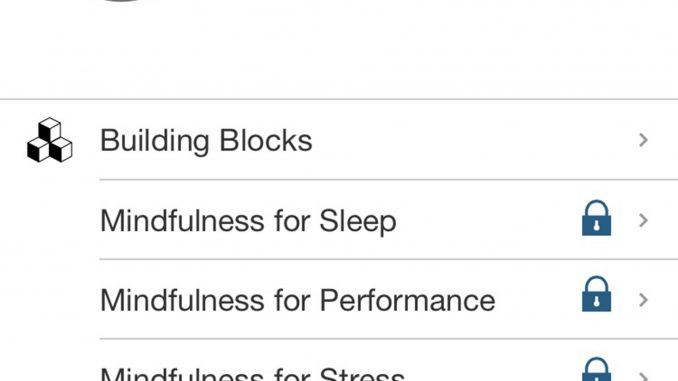
Vince Sonson believes that as more people share their stories, the stigma surrounding mental health as a “personality flaw” will dissipate and people will become more educated on the topic.
“That stigma is so persistent that even today that we need to do whatever we can to make [discussing mental health] acceptable,” Sonson said.
Two years ago, Sonson left his career in the software industry to start Balance Position — a startup that is currently developing an app to “empower student-athletes to achieve and maintain optimal mental wellness” for both their education and athletic life, according to its website.
A 2014 study conducted by Florida-based Healthy Bodies Medical and Dental Center found that 90 percent of student-athletes dealing with a mental health issue will not seek professional help.
The free app, which is expected to launch in November, will provide athletes with tools to track mood, sleep, interest in activities, eating habits and other factors that contribute to mental health. It will also offer users the ability to make in-app purchases for other “mindfulness” content, Sonson said.
Using the app effectively takes time, but Sonson has found student-athletes are willing to make the effort and don’t want games or gimmicks.
One person featured on Balance Position’s stories site is Kara Stroup, a 2016 psychology alumna who played on the lacrosse team for four years. In September 2015, she wrote an essay for OwlSports.com detailing her battle with an eating disorder that she hid for seven years until she told her mother the day after her 18th birthday.
Sonson read Stroup’s story and asked if he could publish it on the site and if she would want to get involved. She has been working as the app’s product director since shortly after she graduated.
“So many more athletes, like I did when I was a senior, are writing their own personal experiences and putting them out in the media,” Stroup said. “So the need is there.”
Stroup didn’t have any software development experience, but Sonson said her passion for the topic and the fact that she was formerly a student-athlete allowed her to be in touch with the app’s target audience.
As product director, Stroup acts as a go-between for developers, designers and users, she said. Members of the startup have talked to more than 100 student-athletes to get their opinions, Sonson added.
“It’s helpful because I have so many friends and connections in that world that I’m able to get a lot of feedback because at the end of the day, it’s not what I want, it’s not what Balance Position wants it to be, it’s about what the users need,” Stroup said.
Sonson’s story is also posted on Balance Position’s website. While studying and playing baseball and football at Yale University from 1991-93, he battled depression before choosing to leave the school and return home to the Pittsburgh area. He returned to school two years later and graduated from Carnegie Mellon University in 1997.
“My life has been great,” Sonson said. “I wouldn’t go back and change anything per say, but there’s still part of me that says, ‘What if I had the tools? What if I could have gotten out in front of it and managed my depression in a way that allowed me to stay at Yale?’”
“My goal is to help current and future student-athletes not have to experience that, not have to be in a position to ask themselves, ‘What if?’” he added.
Athletes have told Stroup and Sonson they want suggestions on how they can improve their health, not just graphs and charts for them to interpret on their own, Sonson said. Though it is not a diagnostic tool, the app will give feedback and allow student-athletes to share data with coaches, family, friends, trainers or anyone else they choose.
Dr. Kat Longshore, a 2015 psychology of human movement alumna, created a mindfulness program for the app. Longshore is also a mental performance coach, someone who helps people understand the psychological components of performing one’s best through consulting.
Mindfulness is about making oneself present in any given moment and avoiding self-judgment based on what happened in the past or what might happen next, Sonson said.
When creating meditation exercises, Longshore considered what a reasonable time commitment was to ask student-athletes to make for meditation. She did this by starting with five-minute meditation sessions and building up from there.
“I think the piece that’s important is that mindfulness isn’t necessarily something that’s just for sport, but it’s something that can impact their life as a whole,” Longshore said.
“We take that holistic approach to it of asking not just about sport, but also about life, about family, about the other things that are important to them,” she added.
Balance Position hopes its app will destigmatize the conversation about mental health and get student-athletes to consider it more.
“We’ve been saying all along, ‘You can’t go wrong if you’re designing a product that you want to use yourself,’” Stroup said.


Be the first to comment